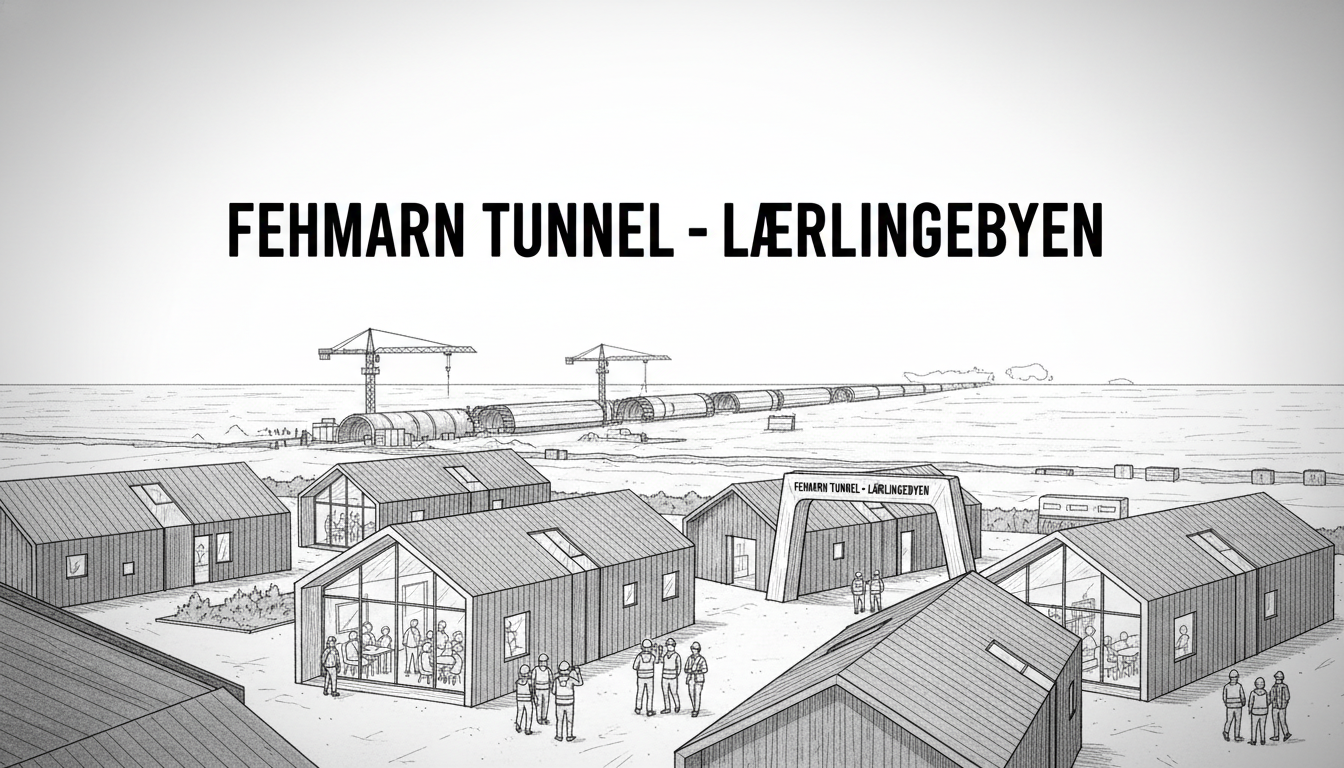Denmark's massive Fehmarn Belt tunnel project has launched an innovative residential community specifically for apprentices. The initiative represents a groundbreaking approach to workforce development in the Nordic construction industry.
At Rødbyhavn, the tunnel's Danish base, developers have created Campus Femern. This specialized living and learning environment features 24 individual housing units with shared facilities. The campus serves apprentices who travel long distances to work on Scandinavia's largest infrastructure project.
Emilie Juel-Helwig, sustainability director for project owner Sund & Bælt, explained the thinking behind this initiative. She said the campus addresses both practical and social needs for young workers. The facility provides not just accommodation but also spaces for community building and peer support.
This approach responds to a critical challenge facing Denmark's construction sector. Despite hundreds of apprentices gaining experience at the Fehmarn site, industry leaders remain concerned about future skilled labor shortages. The problem extends beyond this single project to affect the entire Nordic building industry.
The Fehmarn Belt connection represents one of Europe's most ambitious infrastructure developments. The 18-kilometer immersed tunnel will link Rødbyhavn in Denmark with the German island of Fehmarn. It will feature a four-lane highway and dual electrified railway tracks for high-speed trains.
Project contracts mandate training equivalent to 500 apprentice work-years throughout construction. Current numbers show solid progress, with 358 apprentice work-years already completed. This puts the project well past the halfway mark in its training commitments.
Beyond meeting contractual obligations, the apprentice village represents a strategic investment. Construction firms recognize that attracting young talent requires more than just job opportunities. They must create appealing career pathways and supportive work environments.
The first apprentices have moved into Campus Femern from across Denmark. Early feedback indicates positive experiences with both the living arrangements and community aspects. This residential model could set new standards for how major projects handle workforce development.
Nordic construction projects increasingly face workforce challenges as experienced workers retire. The Fehmarn approach demonstrates how megaprojects can contribute to solving broader industry problems. By investing in young workers' development and well-being, the tunnel project addresses both immediate and long-term staffing needs.
This initiative comes at a crucial time for European infrastructure development. Similar workforce challenges affect projects across the region, making Denmark's apprentice village an important case study. Other nations will watch how this approach impacts both project completion and industry sustainability.
The Fehmarn Belt tunnel continues advancing toward its expected completion date. When finished, it will reduce travel time between Denmark and Germany to just 10 minutes by car or 7 minutes by train. More importantly, it will leave behind a trained workforce prepared for future construction challenges.

